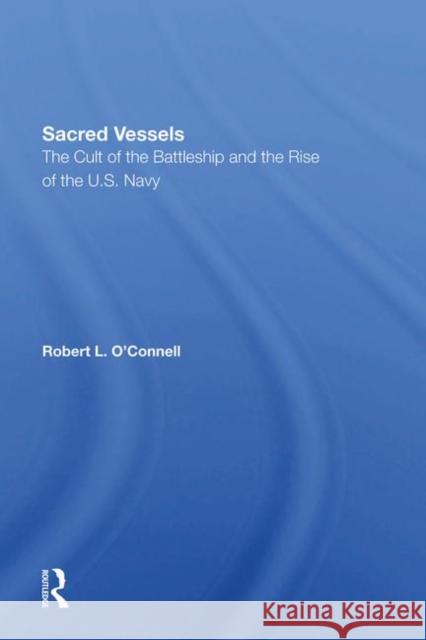Sacred Vessels: The Cult of the Battleship and the Rise of the U.S. Navy » książka
Sacred Vessels: The Cult of the Battleship and the Rise of the U.S. Navy
ISBN-13: 9780367286538 / Angielski / Twarda / 2019 / 409 str.
Sacred Vessels: The Cult of the Battleship and the Rise of the U.S. Navy
ISBN-13: 9780367286538 / Angielski / Twarda / 2019 / 409 str.
(netto: 723,00 VAT: 5%)
Najniższa cena z 30 dni: 654,86
ok. 16-18 dni roboczych.
Darmowa dostawa!
Sacred Vessels is an irreverent account of the modern battleship and its place in American naval history from the sinking of the coal-fired Maine in Havana Harbor in 1898 to the deployment of the cruise missile-armed Missouri in the Persian Gulf in 1991. With provocative insight and wit, Robert O'Connell conclusively demonstrates that the vaunted battleship was in fact never an effective weapon of war, even before developments in aircraft and submarine technology sealed its doom. The worlds navies failed to recognize the full implications of rapid technological change at the turn of the century but were enthralled by the revolutionary design of the HMS Dreadnought, launched in 1903. Nations raced to build and deploy the biggest, the fastest, and the greatest possible number of battleships, usually at the expense of much more effective forms of naval force. Dreadnoughts became the international currency of great power status, subject to the same anxious accountancy as nuclear weapons today. Their awesome beauty captured the public s imagination and won the unquestioning devotion of naval officers everywhere. When war came in 1914, the world held its breath in anticipation of a modern-day Trafalgar, but dreadnoughts everywhere avoided battle, and when they were forced to fight, the results were inconclusive or irrelevant. In spite of this display of impotence, the world's shipyards continued to turn out the great vessels. The sinking of the heart of the U.S. battlefleet at Pearl Harbor-an event that finally forced the United States into World War II-ironically also began to shake the U.S. Navy free from its infatuation with the dreadnought in favor of the more practical charms of the aircraft carrier. Still, sheer faith in the battleship ensured that it would live to fight again, this time with even more questionable results. In fact, says O'Connell, battleships have never played an important role in the outcome of any modern war, but they have continued to be resurrected and refurbished-even garnished with nuclear weapons-right up to the present day. Television images of the Missouri and the Wisconsin firing on the shores of Iraq in 1991 were not just a glimpse of an anachronism: We were witnessing, with a lingering sense of awe, the last gasp of a fire-breathing behemoth that in actuality was all but toothless from the moment of its conception. Sacred Vessels is more than the unmasking of a false idol of naval history. It is a cautionary tale about the often unacknowledged influence of human faith, culture, and tradition on the exceedingly important, costly, and supposedly rational process of nations arming themselves for war.











